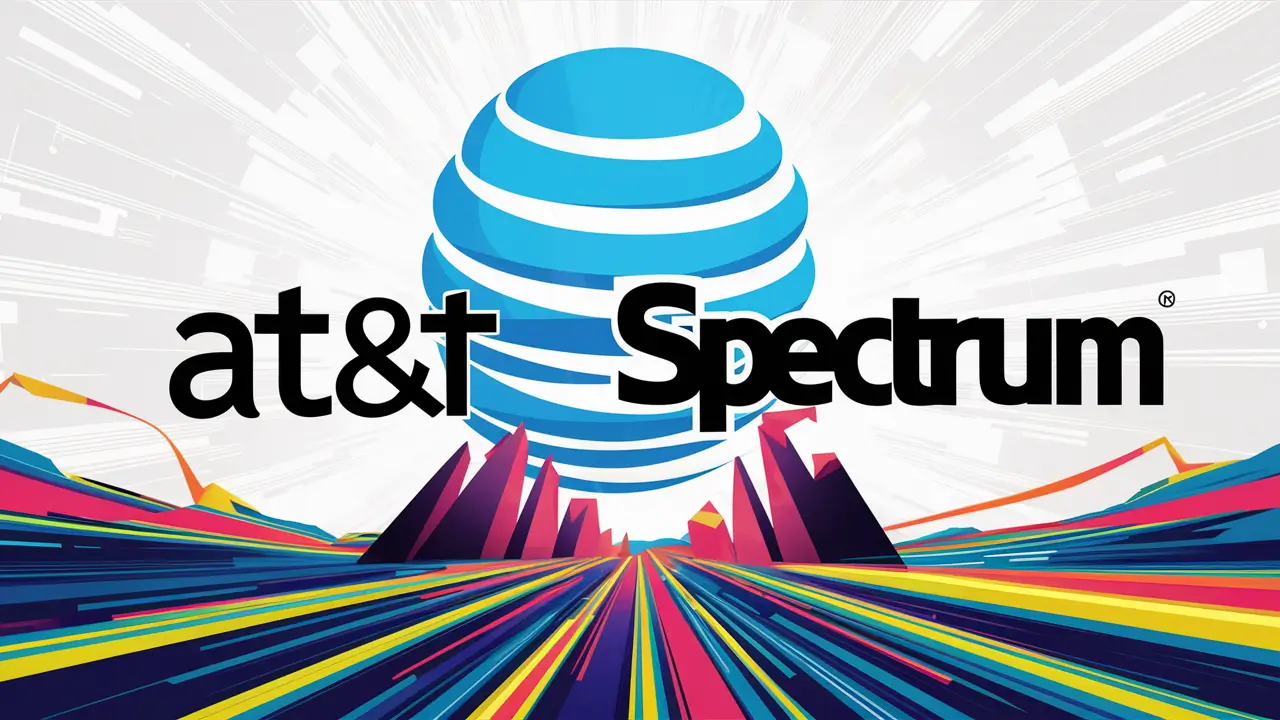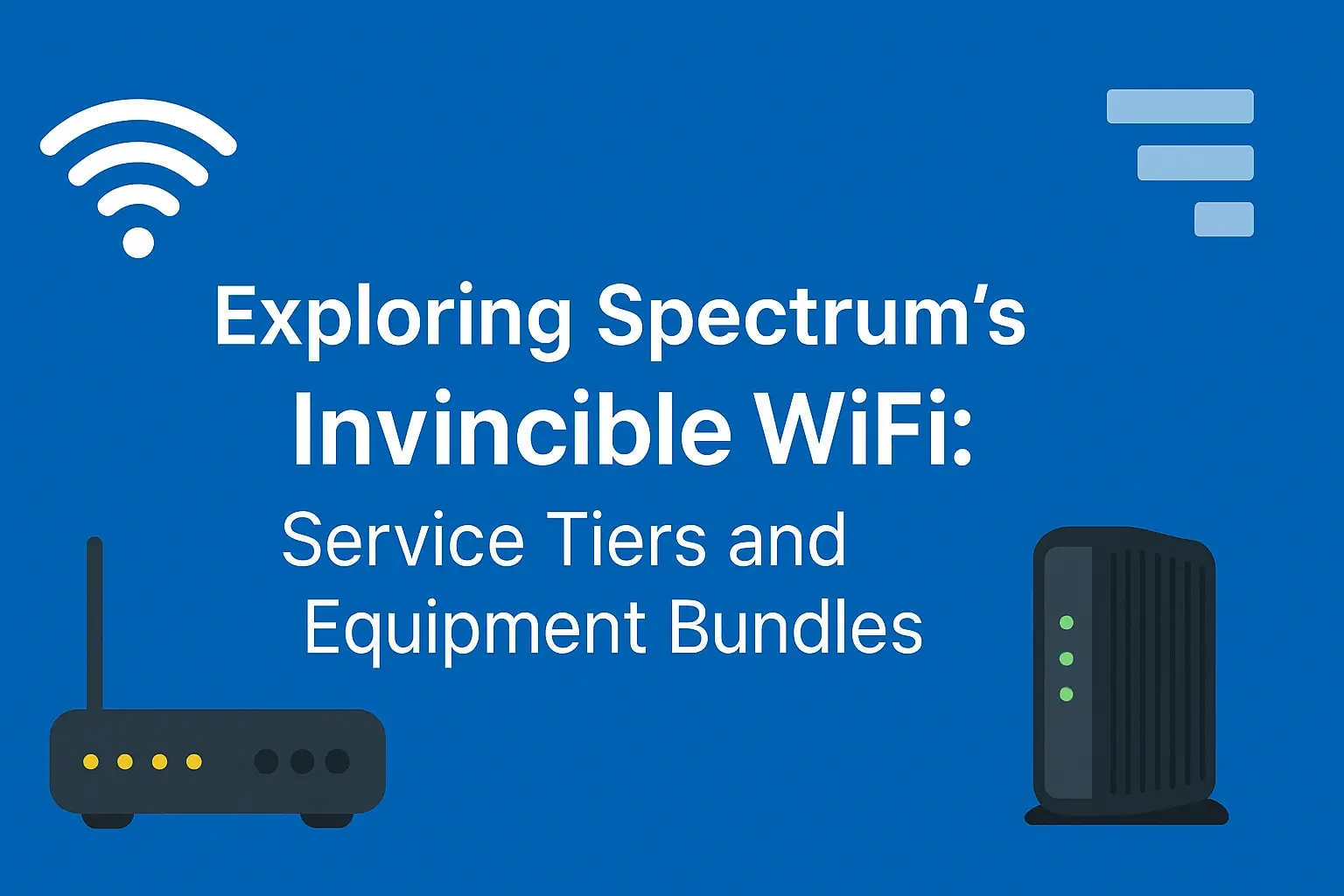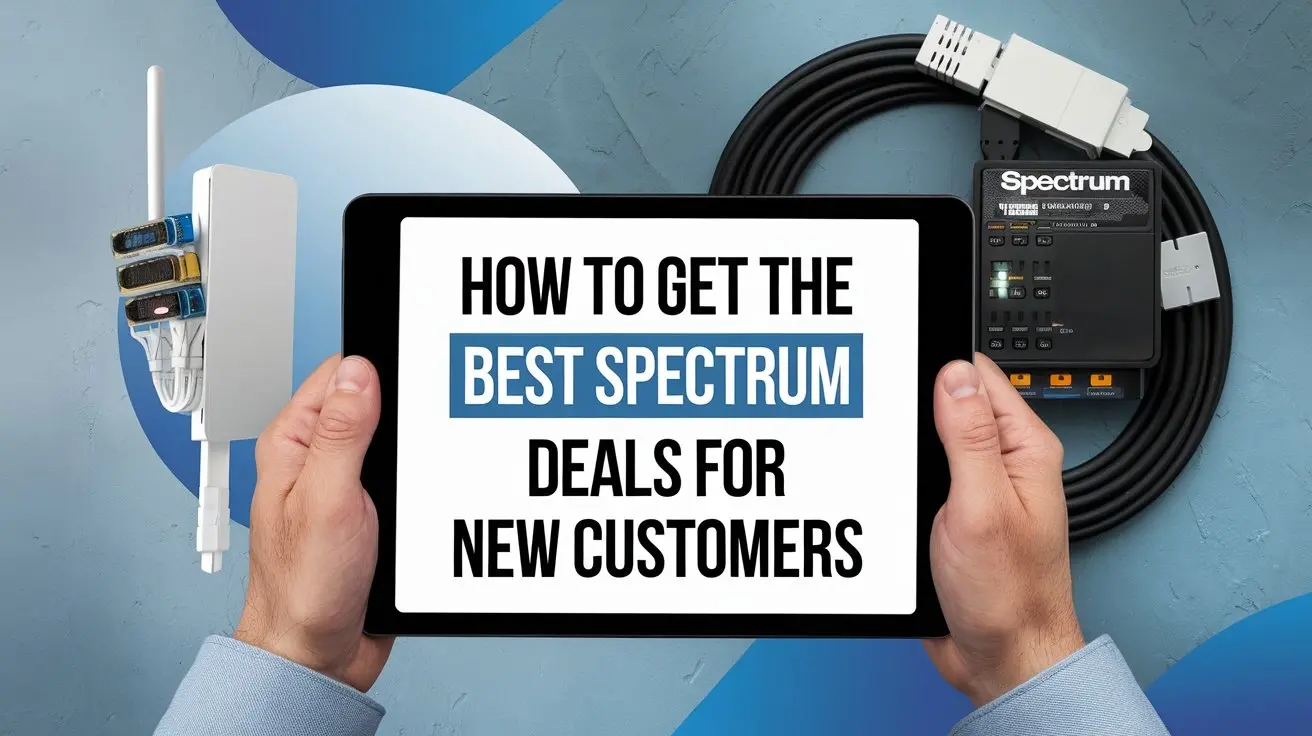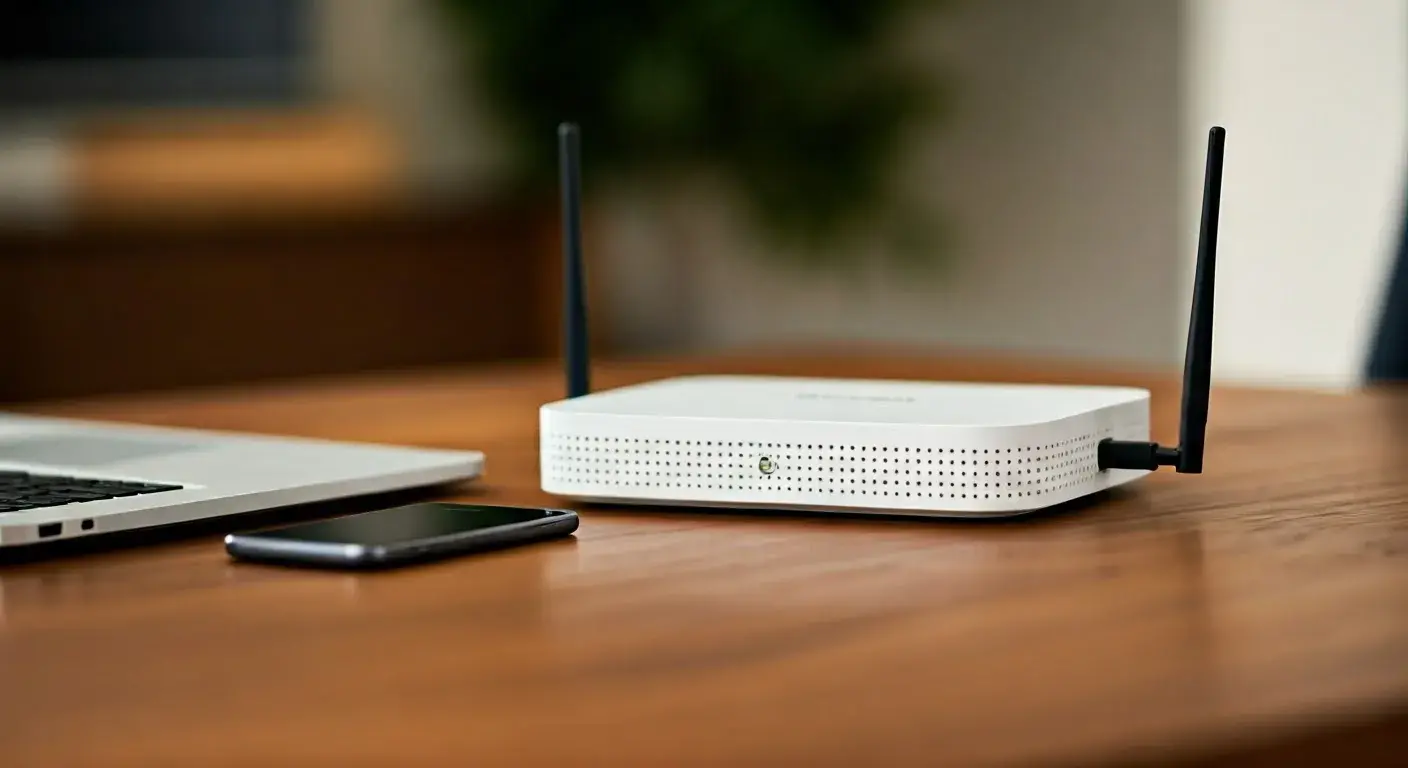Did AT&T buy out Spectrum?

If you've found yourself asking, "Did AT&T buy Spectrum?", you're far from alone. In the complex and ever-shifting landscape of the telecommunications industry, where multi-billion-dollar acquisitions frequently make headlines, it's easy for consumers to get confused. The short, definitive answer is no, AT&T did not buy Spectrum. Spectrum is not, and never has been, owned by AT&T.
This common misconception stems from a perfect storm of industry consolidation, overlapping services, and similar-sounding brand names. AT&T and Spectrum (officially operated by Charter Communications) are two titans of telecom, fiercely competing for your internet, TV, and phone business across vast swathes of the United States. This competition, while great for innovation, often leads to market confusion.
This article will act as your definitive guide, cutting through the noise to provide a clear, fact-based explanation. We'll explore the history of both companies, delve into why this rumor persists, compare their services head-to-head, and even speculate on what the future might hold for these industry giants. By the end, you'll have a crystal-clear understanding of who owns what and how to choose the best provider for your needs.
Background: The Titans of Telecom
To understand the present, we must first look to the past. The histories of AT&T and Charter Communications (Spectrum's parent) are foundational to this discussion.
A Brief History of AT&T
AT&T Inc. (NYSE: T) is a name steeped in American history, often referred to as "Ma Bell." Its origins date back to Alexander Graham Bell's invention of the telephone in 1876 and the subsequent formation of the Bell Telephone Company.
-
The Monopoly Era: For much of the 20th century, AT&T operated as a government-sanctioned monopoly, providing nearly all telephone service across the United States through its subsidiary, the Bell System.
-
The Breakup (1984): In a landmark antitrust case, the U.S. Department of Justice forced the breakup of the Bell System into seven regional "Baby Bells" and a new AT&T that focused on long-distance services.
-
Reconsolidation & Expansion: Over the next few decades, AT&T and the Baby Bells went through a series of mergers and acquisitions, eventually re-forming a telecom powerhouse. Key acquisitions include:
-
Cingular Wireless (2000s): Originally a joint venture, AT&T eventually acquired full control, making it a mobile carrier giant.
-
BellSouth (2006): Acquired the remaining stake in Cingular and expanded its landline footprint.
-
DIRECTV (2015): A massive $67 billion acquisition that made AT&T a major player in satellite TV.
-
Time Warner (2018): An $85 billion acquisition of the media conglomerate, later spun off as WarnerMedia.
-
-
Current Focus: Today, AT&T is a diversified telecommunications and media company, focusing on 5G mobile networks, fiber-optic internet (AT&T Fiber), and its streaming services like HBO Max (now Max).
Background of Spectrum (Charter Communications)
Spectrum is a brand, not a corporation. It is the consumer-facing brand for services offered by Charter Communications, Inc. (NASDAQ: CHTR). Charter's story is one of aggressive growth through acquisition.
-
Humble Beginnings: Founded in 1993, Charter was a smaller cable operator for years, growing steadily but remaining a regional player.
-
The Game-Changing Acquisitions: Charter's trajectory changed dramatically in the 2010s.
-
Acquisition of Time Warner Cable (2016): In a deal valued at over $78 billion, Charter acquired Time Warner Cable (TWC), which was itself a massive cable provider.
-
Acquisition of Bright House Networks (2016): This $10.4 billion acquisition was completed simultaneously, creating a new telecom behemoth.
-
-
The Birth of the "Spectrum" Brand: Following these acquisitions, Charter made a strategic decision to rebrand all of its services—from its legacy systems, Time Warner Cable, and Bright House—under one unified name: Spectrum. This move was designed to create a cohesive national brand identity, eliminating the confusion of multiple names. This rebranding is a primary source of the current confusion, as the "Time Warner" name was well-known and often associated with large corporate deals.
Telecom Industry Consolidation: Why We Assume Buyouts Happen
The rumor that "AT&T bought Spectrum" wasn't born in a vacuum. It's a logical assumption given the industry's recent history. The telecom sector is characterized by constant consolidation. Companies merge or acquire one another to achieve:
-
Economies of Scale: Larger companies can negotiate better deals on equipment and content, reducing operational costs.
-
Expanded Market Reach: Acquiring a competitor instantly grants access to their customer base and service territories.
-
Elimination of Competition: Fewer players in a market can sometimes lead to greater pricing power.
-
Diversification of Services: Cable companies want mobile capabilities (e.g., Spectrum Mobile), and phone companies want video content (e.g., AT&T's purchase of DIRECTV).
With headlines constantly announcing mega-deals like T-Mobile's acquisition of Sprint, it's natural for consumers to assume another giant merger, like one between AT&T and Spectrum, has already occurred.
Did AT&T Buy Spectrum? The Clear Answer
Let's be unequivocally clear: No, AT&T did not and has not bought Spectrum. Spectrum is a product brand owned entirely by Charter Communications, a completely separate and independently traded public company.
The confusion is understandable, but the corporate structures are distinct:
-
AT&T Inc. is headquartered in Dallas, Texas.
-
Charter Communications, Inc. is headquartered in Stamford, Connecticut.
They are direct competitors in the markets where their services overlap. There has been no acquisition, merger, or buyout between these two corporate entities. Any news about an "AT&T Spectrum merger" is either referring to past deals AT&T has done (like with Time Warner, which is unrelated to Time Warner Cable) or is purely speculative.
Why Do People Think AT&T Bought Spectrum?
Several key factors fuel this persistent myth:
-
Brand Name Confusion: The most significant factor. Time Warner Cable was bought by Charter and rebranded as Spectrum. Separately, AT&T bought Time Warner (the media company, not the cable company) and later spun it off. The similarity of the "Time Warner" name in two massive, unrelated deals has created a tangled web of public perception.
-
Overlapping Services and Markets: Both companies offer internet, TV, and phone services. In many regions, a household might see mailers and ads from both AT&T and Spectrum, leading to the assumption they are part of the same parent company trying to upsell, rather than two competitors vying for business.
-
Intense Competition: Their fierce rivalry in advertising can make it seem like they are two sides of the same coin. Competitive ads often compare services directly, further linking them together in the consumer's mind.
-
The "Spectrum" Name: Ironically, the word "spectrum" is also a technical term in the telecom industry, referring to the radio frequencies used for wireless communication (like 5G). AT&T, Verizon, and T-Mobile are constantly bidding on and discussed in the news regarding "spectrum auctions." This creates a linguistic overlap where a headline about "AT&T acquiring more spectrum" could be misread as "AT&T acquiring Spectrum."
AT&T vs Spectrum: Key Differences Breakdown
While they may offer similar service bundles, AT&T and Spectrum are fundamentally different companies with different strengths. Here’s a detailed comparison.
Internet Services
| Feature | AT&T Internet | Spectrum Internet |
|---|---|---|
| Technology | A mix of DSL, Fixed Wireless, and Fiber-Optic (AT&T Fiber). | PriPrimarilyHybrid Fiber-Coaxial (HFC) cable. |
| Key Selling Point | Symmetrical speeds (same upload/download) on Fiber plans (e.g., 300 Mbps, 500 Mbps, 1 GIG, 2 GIG, 5 GIG). | No data caps on any residential plan. Standard pricing (no contract). |
| Speed Tiers | Varies widely (5-100 Mbps on DSL, up to 5 Gbps on Fiber). | Three main tiers: Spectrum Internet® (300 Mbps), Internet Ultra (500 Mbps), Internet Gig (1 Gbps). |
| Data Caps | DSL plans have a 1.5TB data cap. Fiber plans have no data caps. | No data caps on any plan. |
| Pricing | Often requires a 12-month contract for the best pricing, especially on DSL. | No contracts; price is guaranteed for 12 months, then subject to increase. |
Winner:
-
For Pure Speed & Performance: AT&T Fiber (if available at your address) due to superior fiber technology and symmetrical speeds.
-
For Simplicity & Consistency: Spectrum for its straightforward, no-cap, no-contract approach, especially in areas where AT&T only offers DSL.
TV Services
| Feature | AT&T TV | Spectrum TV |
|---|---|---|
| Primary Offering | DIRECTV STREAM (a streaming service, formerly AT&T TV). Also, legacy DIRECTV satellite. | Traditional cable TV packages and the Spectrum TV® Stream app. |
| Key Features | Access to a robust channel lineup, including premium sports packages. Cloud DVR. | Extensive channel selection, including Spectrum Originals. On-Demand library. |
| Contracts | DIRECTV STREAM is contract-free. Satellite service often requires a 2-year agreement. | Typically requires a 12-month agreement for the best promotional pricing. |
Winner: This is highly subjective and depends on desired channels and preference for streaming vs. traditional cable. DIRECTV STREAM is often praised by cord-cutters seeking a robust streaming alternative, while Spectrum TV offers a more traditional cable experience.
Mobile Services
| Feature | AT&T Mobile | Spectrum Mobile |
|---|---|---|
| Network Type | A Major Mobile Network Operator (MNO). Owns and operates its own nationwide 5G network. | A Mobile Virtual Network Operator (MVNO). Piggybacks on Verizon's network. |
| Target Audience | Everyone. A full-service provider with a wide device selection and international plans. | Primarily, Spectrum Internet customers are looking for a bundled discount. |
| Pricing Model | Traditional postpaid plans with unlimited data options. | Unique "By the Gig" or "Unlimited" plans, often at lower costs for Spectrum Internet customers. |
Winner:
-
For Network Ownership & Coverage: AT&T Mobile, as it controls its own network infrastructure and typically has higher priority data.
-
For Budget-Conscious Bundlers: Spectrum Mobile can offer significant savings for existing Spectrum Internet customers.
Coverage Areas
-
AT&T: Has a massive nationwide coverage for mobile. Its internet service (especially fiber) is expanding, but it is not available everywhere. Its DSL service is widely available but is being phased out.
-
Spectrum: Its cable internet footprint is extensive but primarily focused on the geographic areas built out by the former Time Warner Cable and Bright House Networks. It is not a nationwide home internet provider like AT&T is for phone service. [Check AT&T Availability in Your Area] | [Check Spectrum Availability in Your Area]
Customer Service Reputation
Both companies have historically received middling scores in customer satisfaction surveys like the American Customer Satisfaction Index (ACSI). Customer service experiences can vary dramatically based on location and individual circumstances. It's advisable to check recent local reviews.
Market Competition: How AT&T and Spectrum Battle It Out
AT&T and Spectrum are locked in a two-front war: for your home and your pocket.
-
The Broadband War: In neighborhoods where both AT&T Fiber and Spectrum Internet are available, the competition is fierce. AT&T touts its superior fiber technology, while Spectrum promotes its no-data-cap policy and simple pricing. This competition benefits consumers through promotional pricing and improved service offerings.
-
The Wireless War: With the launch of Spectrum Mobile, Charter directly attacked the wireless market dominated by AT&T, Verizon, and T-Mobile. By leveraging its internet customer base and Verizon's network, it offers a compelling, low-cost alternative. In response, AT&T (and others) have aggressively promoted bundling wireless with internet services to retain customers.
What If AT&T Bought Spectrum? A Speculative Look
While it hasn't happened, it's a fascinating "what if" scenario. An acquisition of Charter Communications by AT&T would likely be the largest telecom merger in history and would face immense regulatory scrutiny from the FCC and the Department of Justice.
Potential impacts could include:
-
Reduced Competition: In many markets, AT&T and Spectrum are the only two high-speed internet providers. A merger would create a monopoly for home internet in those areas, almost certainly leading to...
-
Higher Prices: With no local competitor, the new entity would have little incentive to offer promotional pricing or competitive rates.
-
Service Integration Challenges: Merging two massive networks with different technologies (fiber and coaxial cable) would be a logistical nightmare, potentially disrupting service for millions.
-
Regulatory Hurdles: Given current antitrust sentiments, such a deal would likely be challenged or even blocked to preserve market competition.
The Future of AT&T and Spectrum
The path forward for both companies is clear: evolution and expansion.
-
AT&T's Future: Heavily focused on expanding its AT&T Fiber footprint to compete directly with cable companies like Spectrum. It is also all-in on deploying its 5G+ (mmWave) and nationwide 5G network for mobile. The company has shifted away from media (spinning off WarnerMedia) to refocus on its core telecom strengths.
-
Spectrum's Future: Charter is aggressively expanding its network infrastructure, launching a massive network evolution project to support higher symmetrical speeds, crucial for competing with fiber. It will also continue to grow its Spectrum Mobile MVNO service, using it as a powerful tool to reduce customer churn on its internet service.
Both will continue to be major players, competing not just with each other but also with a new breed of competitors like SpaceX's Starlink and 5G Home Internet services from T-Mobile and Verizon.
Conclusion: Clarity Amidst the Confusion
So, did AT&T buy out Spectrum? The answer remains a resounding and factual no. The rumor is a classic case of industry confusion, fueled by similar services, past acquisitions with similar names (Time Warner), and the natural assumption of consolidation in a tight market.
AT&T and Spectrum (Charter Communications) are two distinct giants on a competitive collision course. AT&T is betting its future on cutting-edge fiber optics and its owned wireless network, while Spectrum is evolving its powerful cable network and leveraging a mobile virtual network to provide value.
This competition is ultimately a win for consumers, driving innovation, improving services, and keeping prices in check. The best way to choose between them is to ignore the merger myths and focus on the facts: check which services are available at your doorstep, compare the specific plans and prices, and read recent reviews about local customer service. Use their competition to your advantage to find the best deal for your home. Check availability in your area today to see your real options.
Faq
1. Did AT&T ever own Spectrum?
No, AT&T has never owned the Spectrum brand or Charter Communications. Spectrum is solely a brand of Charter Communications.
2. Who currently owns Spectrum?
Spectrum is owned by Charter Communications, Inc., a publicly traded company headquartered in Stamford, Connecticut.
3. Did AT&T and Spectrum merge?
No, AT&T and Charter Communications (which operates Spectrum) have never merged. They are separate, competing companies.
4. Which is better: AT&T or Spectrum?
There's no universal winner. It depends on your location and needs. - AT&T Fiber is generally superior for its symmetrical upload/download speeds. - Spectrum Internet is a strong choice for its straightforward pricing with no data caps. - You must check which services are available at your specific address to make a true comparison.
5. Do AT&T and Spectrum share networks?
No, they operate entirely separate and independent network infrastructures for both home internet and mobile. Spectrum Mobile uses Verizon's network, not AT&T's.
6. Are AT&T and Charter Communications the same company?
Absolutely not. AT&T Inc. and Charter Communications, Inc. are two completely different corporations that trade on the stock market under different ticker symbols (T and CHTR, respectively). They are fierce competitors.
7. Will AT&T buy Spectrum in the future?
While the telecom industry is always consolidating, a future acquisition of Charter by AT&T is considered highly unlikely due to the immense regulatory hurdles and antitrust concerns it would raise. There are no credible rumors or reports suggesting this is being planned.
8. Can I switch from AT&T to Spectrum easily?
Yes, you can switch providers. You will need to check if Spectrum services your address, schedule an installation, and then cancel your AT&T service. Be aware of potential early termination fees if you are under contract with AT&T.
9. Which has better internet speed: AT&T or Spectrum?
This is technology-dependent. AT&T's fiber-optic service offers faster and more reliable speeds, especially for uploading, compared to Spectrum's cable internet. However, in areas where AT&T only offers older DSL technology, Spectrum's cable internet will be significantly faster.
10. Is AT&T bigger than Spectrum?
By market capitalization and total revenue, AT&T is a larger company than Charter Communications. However, in terms of pure broadband internet subscribers, Charter Communications is consistently one of the largest providers in the U.S., often slightly ahead of or behind AT&T depending on the quarter.





